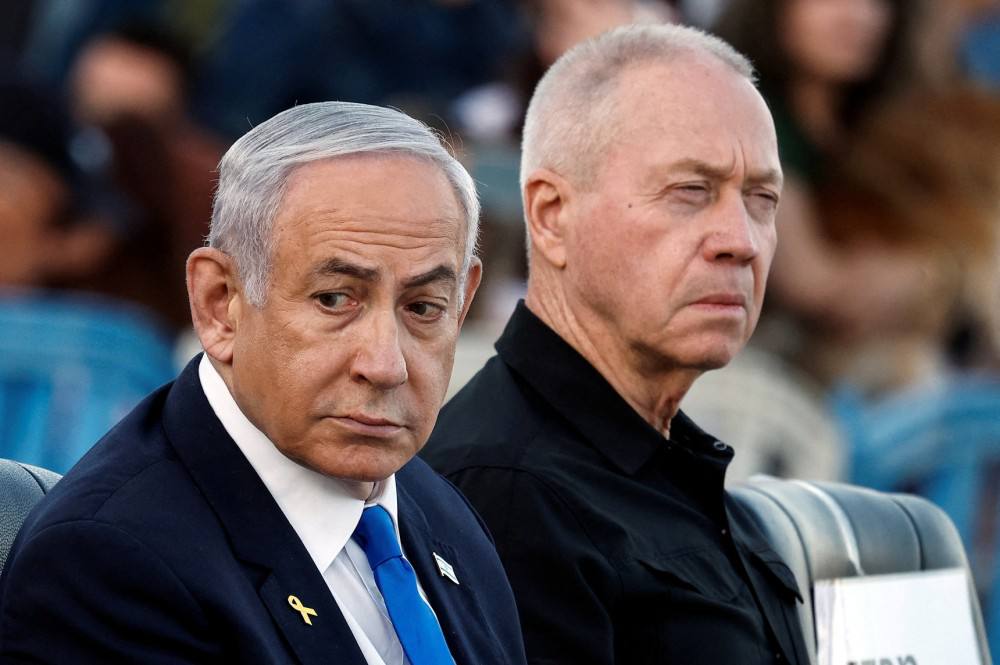From Gaza to The Hague
From Gaza to The Hague
Arrest warrants issued by the International Criminal Court for Benjamin Netanyahu, Yoav Gallant, and Mohammed Deif are dividing the international community, although they are hardly likely to be enforced. The International Criminal Court (ICC) has issued arrest warrants for Israeli Prime Minister Benjamin Netanyahu and his former Defense Minister Yoav Gallant on charges of crimes against humanity and war crimes related to military operations conducted in the Gaza Strip.
Judges in The Hague have also issued an arrest warrant for Mohammed Deif, the military leader of Hamas in Gaza, who is accused of crimes against humanity and war crimes.
Israel believes that Deif was killed in a bombing in July, but due to the inability to verify, the court proceeded with issuing the warrant anyway, although this news, following a request made by ICC Chief Prosecutor Karim Khan in May, has sparked significant criticism and divided international public opinion.
Netanyahu has attacked the judges, accusing them of anti-Semitism and referring to a new Dreyfus case, alluding to the unjust prosecution of a Jewish officer in the French army in 1894.
The anger of the Israeli Prime Minister was echoed in the comments from the White House, which described the arrest warrant as outrageous and questioned the court’s jurisdiction in this matter.
However, the Palestinians joined the International Criminal Court in 2015, and therefore, the international court has full jurisdiction over alleged crimes committed in the occupied Palestinian territories.
On this issue, Republican parties were more outspoken. Mike Waltz, Republican representative from Florida and a potential National Security Advisor to President-elect Donald Trump, announced that the future administration would send a strong response to both the court and the United Nations.
For the first time in history
Since the International Criminal Court began its operations on July 1, 2002, it has never before issued an arrest warrant against a leader supported by Western countries.
In justifying its decision, the International Criminal Court stated that it had found reasonable grounds to believe that Netanyahu and Gallant were responsible for crimes including the use of starvation as a method of warfare, murder, persecution, and other inhumane acts aimed at systematically depriving the civilian population of Gaza of essential goods for human survival.
According to the judges, the Israeli government has deliberately deprived civilians of essential goods such as food, water, medicine, and fuel, which is a violation of international humanitarian law. Authorities have also imposed restrictions that have hindered the activities of humanitarian organizations and hospitals, forcing doctors to operate on and amputate the wounded without the use of anesthesia, even in the case of children.
After more than a year of war and 44,000 confirmed deaths among Palestinians, the International Criminal Court has also accused Israeli officials of allowing bombings that primarily targeted the civilian population, resulting in unjustifiable deaths and suffering.
What do international diplomats say?
If Israel and the United States do not join the International Criminal Court and have no obligation to its rulings, the 124 countries that have signed the Rome Statute, under which the court was established, are obliged to respect its decisions.
Therefore, following the news, various countries committed to enforcing the warrant, while others refrained from commenting.
Canadian Prime Minister Justin Trudeau told reporters, “We support international law and will respect all regulations and rulings of international courts.”
Dutch Foreign Minister Kaspar Welkamp has stated that Dutch authorities will arrest Netanyahu if he sets foot on Dutch soil.
France has also announced its support for the court’s action, while Viktor Orbán has opposed it, stating, “We have no choice but to challenge this decision.”
The Hungarian Prime Minister said, “I invite Netanyahu to come to Hungary,” but European Union Foreign Policy Chief Josep Borrell clarified that the arrest warrants are binding for all signatories of the Rome Statute, and thus all EU member states are obliged to enforce them.
United States
The International Criminal Court’s warrants have reignited debates over Western double standards and caused embarrassment for the outgoing Biden administration.
In fact, it is hard to believe that the U.S. government was unaware of the actions attributed to its Middle Eastern ally, Israel, as American international agencies and USAID have repeatedly emphasized in their reports that Israel has not done enough to allow aid into the Gaza Strip and at some stages has deliberately obstructed their flow.
Throughout more than a year of war and despite numerous requests, the United States has continued to stand by Israel’s military efforts, even as Gaza has been largely destroyed, Palestinian casualties have sharply increased, and UN officials have repeatedly warned of famine conditions throughout the region.
From October 7 to today, the Biden administration has provided $125 billion in aid to Israel, and this week alone, it vetoed another ceasefire resolution in the UN Security Council with only 14 votes in favor.
In the issued rulings, the judges of the International Criminal Court have pointed fingers at what could be considered potential complicity in war crimes.
Ultimately, it seems that the arrest warrants issued by the International Criminal Court against Benjamin Netanyahu and his former Defense Minister Yoav Gallant have sparked a wave of anger and condemnation across all political spectrums in Israel and created an unprecedented front.
However, in the front of Western countries, different reactions were observed. In contrast to the anger of the American ally, the statements of Josep Borrell, the EU High Representative, stood out, who spoke of the International Criminal Court’s decision as a binding one for all EU countries because they are signatories of the Rome Statute. Although it is rare and unusual for democratically elected leaders to be condemned as war criminals, the ICC’s decision prompts the international community to reflect on how the war in Gaza has been conducted for over a year.

